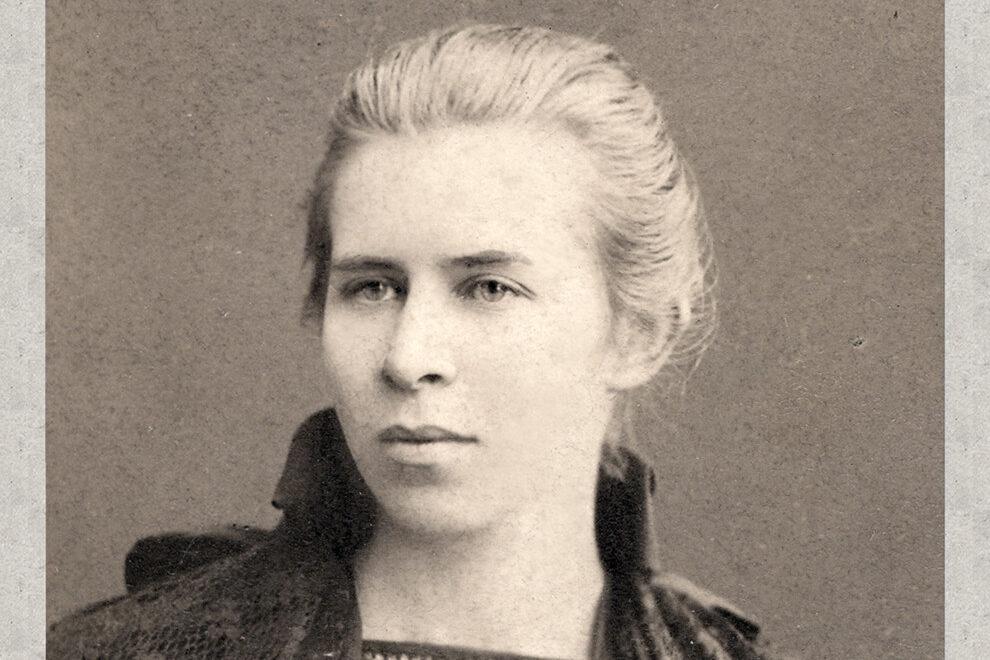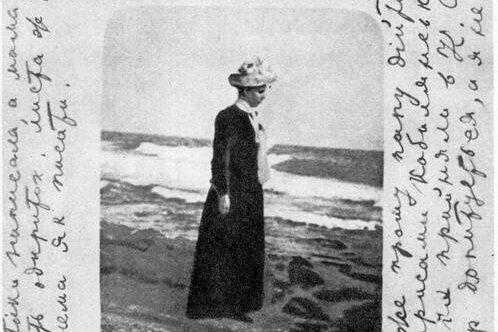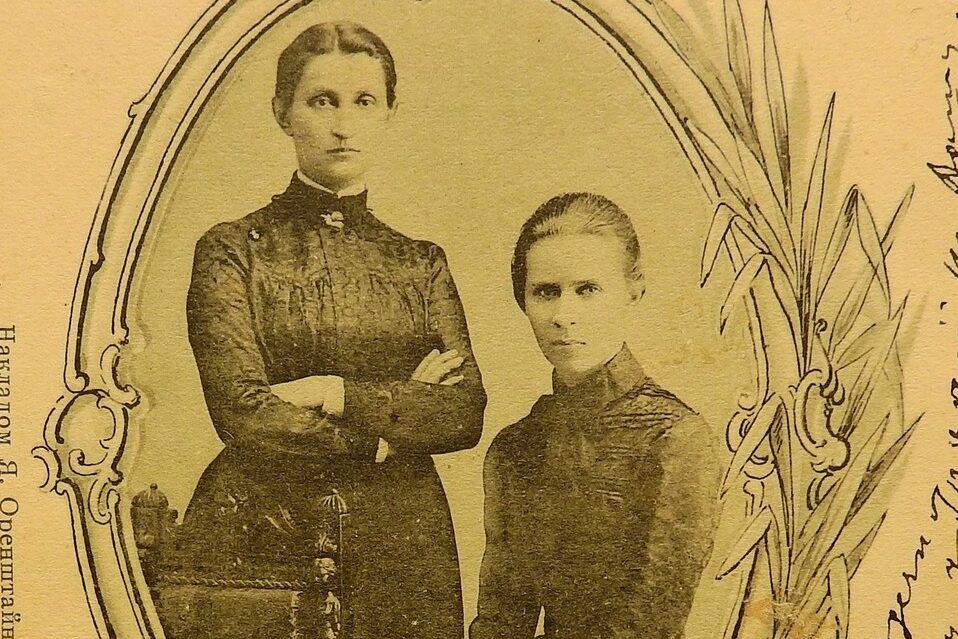AUTHOR
Dr Sasha Dovzhyk, Special projects curator at the Ukrainian Institute London and Associate Lecturer at the School of Slavonic and East European Studies, UCL
A ‘Ukrainian woman’

Lesia Ukrainka is the pen name of the iconic Ukrainian writer Larysa Kosach. The literal meaning of ‘Ukrainka’ is ‘Ukrainian woman’. At the time of Ukrainka’s debut at the age of 13, there was no such thing as the Ukrainian state. Ukrainian lands were divided between the Austro-Hungarian and Russian empires. In the Russian Empire, where Ukrainka lived, the very act of writing literature in the Ukrainian language was risky. Works in Ukrainian had to go through an arduous censorship process in St Petersburg. Translations of world literature into Ukrainian were strictly banned because it was important for the imperial ideology to preserve the status of the Ukrainian language as a regional dialect not fit for ‘high culture’. Having chosen the pen name ‘Ukrainka’ at the age of 13, Larysa Kosach went on to reinvent what it meant both to be a Ukrainian and a woman of her time.
A feminist who rewrote European classics

During Lesia Ukrainka’s lifetime, her plots were deemed too ‘exotic’ by her contemporaries who, in accordance with the 19th-century populist doctrine, identified the Ukrainian nation with the peasant class. Ukrainka’s ambition lay elsewhere. Envisioning Ukrainian literature as an equal participant in the conversation with major world literatures, she almost single-handedly coined the required cultural vocabulary through her poetic dramas. Her subjects range from Homeric Greece and the ancient Middle East to the 17th-century Tsardom of Muscovy. Cassandra is just one of Lesia Ukrainka’s plays which revises a foundational story of European culture from a feminist perspective. The Stone Host reviews the classic story of Don Juan centering two powerful women characters. Her famous neo-Romantic drama Forest Song is a subtle retelling of the myth of Orpheus and Eurydice where the poetic power is transferred to the latter.
A New Woman of the fin de siècle

In Lesia Ukrainka’s letters, the layers of Ukrainian and European cultural history coexist with the personal trials of the emergent heroine of her time, the New Woman. Whether it is the nation-building work of the secret societies of the Ukrainian intelligentsia in the Russian Empire, the latest breakthroughs in Scandinavian theatre, or the challenges encountered by an emancipated woman traveller at the turn of the century, Ukrainka’s analysis is sharp, lucid, erudite, and often interlaced with humour. Ukrainka dismantled patriarchal hierarchies in her literary work and in her personal life. The writer went against the wishes of her family concerning the choice of her life partner, a confrontation viewed by Ukrainka as a stepping-stone in the general struggle for women’s liberation. Her correspondence with another pioneering feminist writer of the Ukrainian fin de siècle, Olha Kobylianska, reveals a search for a new radical model of female intimacy. Like Kobylianska, Ukrainka was a feminist committed to the Ukrainian national project, which was at the time dominated by patriarchal and populist approaches.


